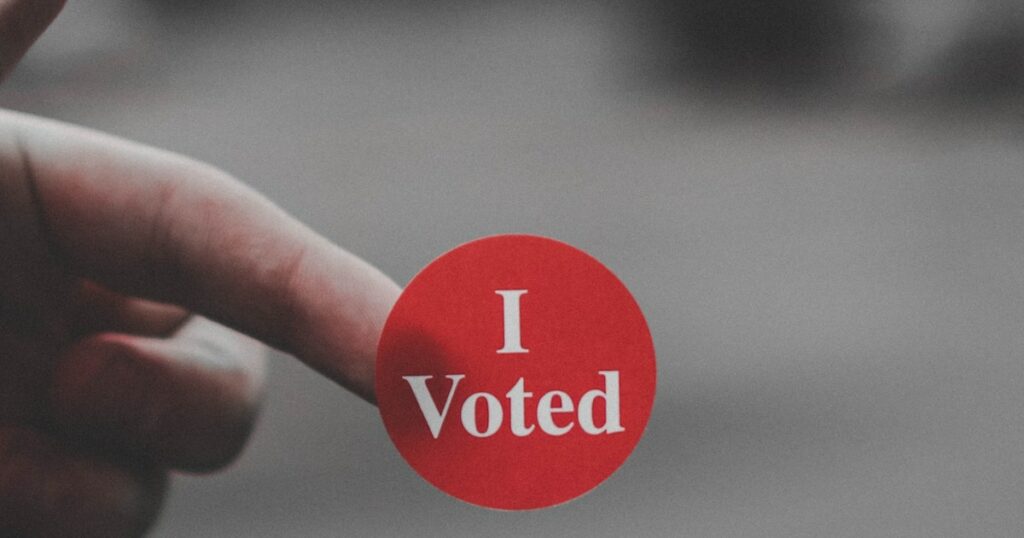Speaking as a Christian into the chaos
As we struggled through the COVID-19 pandemic, many people on social media fought about what the government should or should not do and what rights Americans have. Christians weighed in on both sides. Some were pleased with government’s recommendations and mandated protocols; others were angry with the same recommendations and protocols. Right now, political talk on social media seems inescapable.
If you choose to wade into the deep waters of social media political conversations, whether related to the pandemic or the elections, first ask yourself these three questions.
1. Who am I?
This is not a philosophical question or a series of positive self-affirmations. This critical question will shape your online interactions.
Americans tend to answer this identity question in terms of our citizenship and our rights: “I am an American. I have the right to free speech. I have the right to free assembly. I have freedom of religion and the right to bear arms.”
As a citizen of a country founded on the Constitution and the Bill of Rights, all of the above are true. And yet, American citizenship does not fully define who I truly am.
Who am I? I am a Christian — a little Christ. Baptized, justified, sanctified and awaiting His return, I am Christ’s own. That’s who I am.
If you are a Christian, it is also who you are. We are defined first and foremost by what God has done for us in Christ. And that reality is more inescapable than online political discussions.
2. Who is listening?
Before the internet and chat rooms, before YouTube comments and social media, our social circles rarely intersected. Church friends were at church. School friends were at school. Work colleagues were at work. Family gatherings were with family. Though these circles occasionally overlapped, they remained largely independent of each other.
Social media changed that. Your Facebook newsfeed includes all those circles at once. Church, work, college, high school, hometown and family all exist in one place now. This is called context collapse. The separate contexts for conversations have now collapsed into one — your social media wall. Each circle can see and interact with your posts, and each of these converging social circles brings a different perspective or context.
What is appropriate in one social context might not be appropriate in another. A political conservative will not discuss her political opinions with her progressive friends in the same way as she would with her conservative friends. In this way, she is not only being polite but also representing her perspective well.
Your progressive friend, conservative friend, religious friend, work friend, church friend, family and more are watching and reading what you post. They are interpreting you and the Christ you represent based on what you post.
As a Christian, your social media wall is not a “free speech zone” where you can say whatever you want. Your identity in Christ trumps your identity as an American and even as an individual with opinions. Every time. No exceptions.
3. What will you say?
You know who you are. You represent Christ. You know that anyone could be listening. Now, what will you say? Consider this big question:
Do your political discussions on social media reflect God’s view of this world and your faith in Him as creator and redeemer?
God is not defined by any of the political or philosophical labels that we create. He is neither conservative nor liberal. He is not a Republican or a Democrat. He is not a monarchist or a populist. Our identity comes from Him. We should not return the favor by creating an identity for Him.
He has told us to trust in Him above all else. God regularly called His Old Testament people, whether in slavery or freedom, whether ruled by kings or in exile, to trust Him alone in every political situation.
In the life, death, resurrection and ascension of Jesus Christ, God has once and for all shown that He is trustworthy. God’s people in the Old Testament trusted in the promise of the Messiah to come, the one who would save God’s people; we look back and trust in what has been fulfilled — in Christ. God has revealed that He is creator and redeemer of all things.
Do your online political conversations reflect that faith?
The answer goes back to the first question: Who are you? You represent Christ in everything you do and say. When you post, someone, somewhere in all your circles, may be asking, “Is that what Jesus says? Is that what Christians believe? Is that what the Bible says about it?”
Well-meaning Christians can get carried away. They may not say, “God is a Democrat” (or a Republican), but their statements imply that they view Him as such. Some suggest that the Bible specifically endorses American democracy.
I have seen some Christians state that even though the government is under God’s authority, we should really trust our reason and God-given, decision-making ability. Other Christians imply that we should trust the government to solve our problems. Others say we should not trust the government at all.
Each of the conflicting statements above implies a trust in human reason and solutions rather than the One who created and rules over everything.
The answer to the question “What will you say?” is simple but not easy. It is simple because the call to trust in God above all things, including political things, is clear:
The First Commandment
You shall have no other gods.
What does this mean? We should fear, love, and trust in God above all things.
Small Catechism
Let me encourage you to make your confession more explicit in your political posts and discussions. Take more time to speak of trust in our heavenly Father above all things. Point to Christ as the answer to present problems, not just in the future.
Is there political unrest? Christ answered that on the cross. Is there a pandemic? Christ answered that also. Did your preferred political leader get elected? Christ on the cross speaks to that. His death and resurrection define our existence in this world.
You won’t win many internet arguments or score political points with this approach, and you may end up making people even more angry; the world hates Christ (John 15:18; 1 John 3:1). But you might confess Christ and His promises more clearly to those in your circles that desperately need Him.
This article originally appeared in the August issue of The Lutheran Witness. Purchase your copy today.






Wow, what a wonderful article. It brought me back to the proper perspective of who I am and who I serve and trust in.
A few more Bible verses that might be worth considering in the context of our online behavior:
From the same mouth come blessing and cursing. My brothers, these things ought not to be so. […] Who is wise and understanding among you? By his good conduct let him show his works in the meekness of wisdom. James 3:10,13 ESV
Honor everyone. 1 Peter 2:17 ESV
Outdo one another in showing honor. Romans 12:10 ESV
Do nothing from selfish ambition or conceit, but in humility count others more significant than yourselves. Phil. 2:3 ESV
[Make] the best use of the time, because the days are evil. Eph. 5:16 ESV
I have become all things to all people, that by all means I might save some. 1 Cor. 9:22 ESV
You shall love your neighbor as yourself. Mark 12:31 ESV
In your hearts honor Christ the Lord as holy, always being prepared to make a defense to anyone who asks you for a reason for the hope that is in you; yet do it with gentleness and respect. 1 Peter 3:15 ESV
Jesus answered, “My kingdom is not of this world. If my kingdom were of this world, my servants would have been fighting….” John 18:36 ESV
Rather, speaking the truth in love, we are to grow up in every way into him who is the head, into Christ. Eph. 4:15 ESV
Wonderful verses. Thank You.